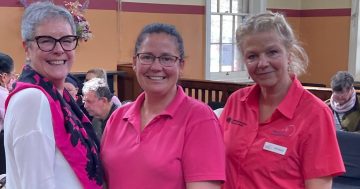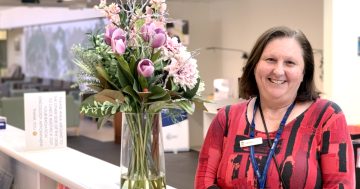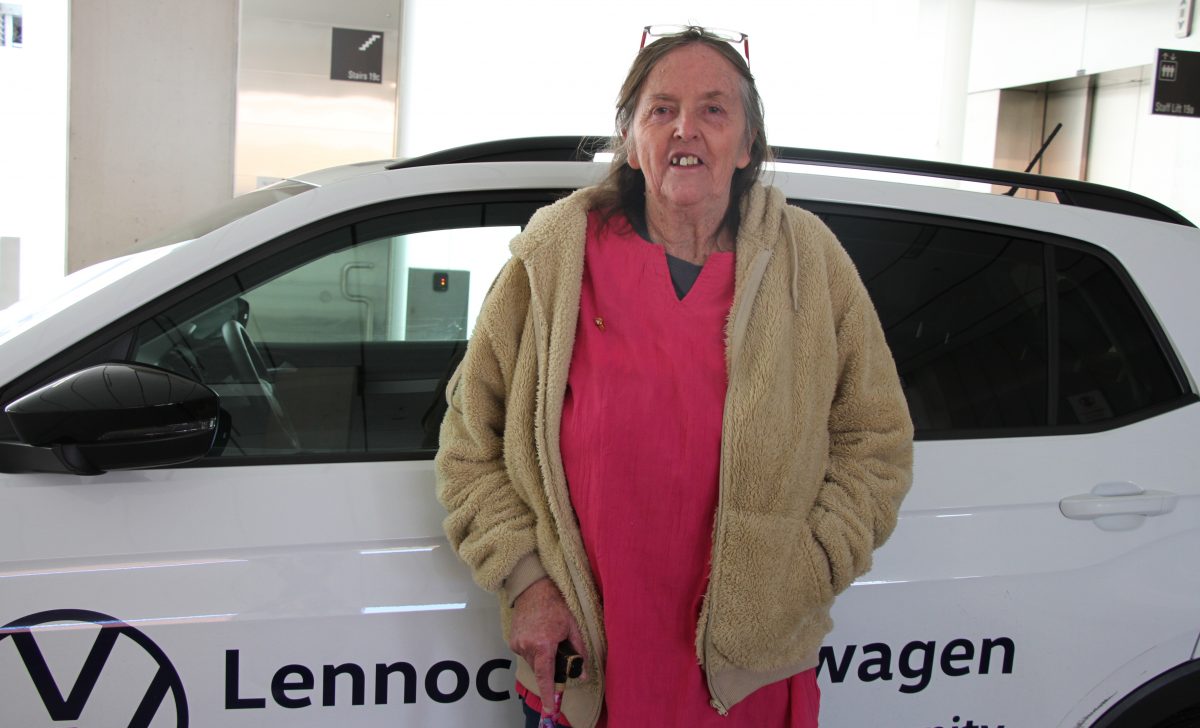
Karen Richardson is grateful for the Volunteer Transport Program. Photo: Evelyn Karatzas.
When Karen Richardson lost her husband, she also lost her biggest supporter in her cancer journey.
The 71-year-old was diagnosed with colon cancer in 2014, which then transferred to her lungs. She began weekly treatments at the Canberra Region Cancer Centre a year later.
After her husband died, she increasingly relied on the support of her friends to drive her to appointments.
“I was able to drive myself until late last year, then I experienced side effects from chemotherapy and my feet were getting numb,” Ms Richardson said.
“It just wasn’t good for me to drive anymore.”
Taxis were also not a viable option, either.
“Taxis over where I live are over $40 one way, and I also come up Monday and Wednesdays, so you’re looking at nearly $200 for two trips, which is not so feasible for me.”
She then discovered the Volunteer Transport Program – a car service that took cancer patients to-and-from the hospital to their appointments for those unable to make the trip themselves.
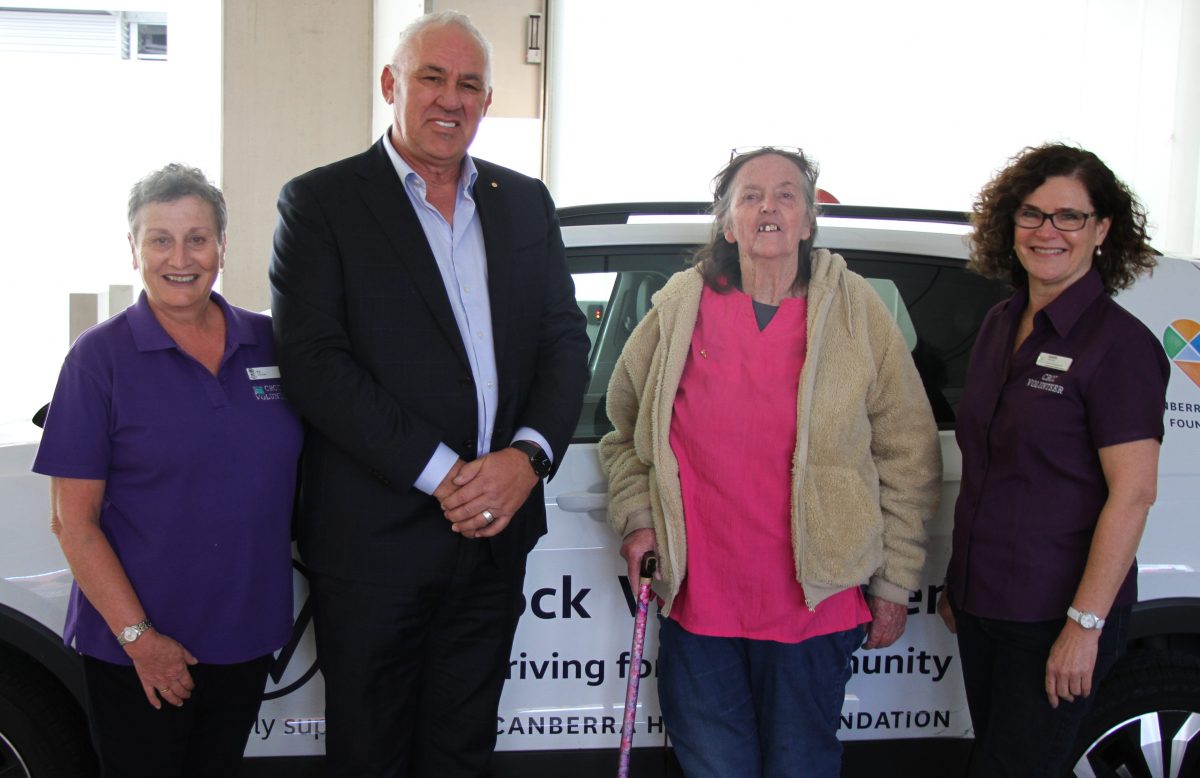
Volunteer Matilda Dabusti, Lennock Motors’ Peter Munday, patient Karen Richardson and volunteer Jennie Gordon outside the Canberra Region Cancer Centre. Photo: Evelyn Karatzas.
It was like a weight had lifted off Ms Richardson’s shoulders.
“Every week I’d worry about how I was going to get there [to the hospital] … it was just very stressful trying to work out more ways to get a lift up here, and now I don’t have to worry,” she said.
“It’s is the only way I can get up here now, and it’s absolutely wonderful.”
The cancer patient developed great relationships with volunteers in the program, including Jennie and Matilda.
“We have a good time and I always look forward to them coming in. They’re very tolerant … very caring and just very lovely people,” Ms Richardson said.
Last year when driving herself home after treatments, she said she felt very alone.
“To have friendly drivers and volunteers there now to take me and chat to me just takes your mind off things. It’s nice and really valuable to me. We talk non-stop all the way there and back.”
Volunteer Transport Program volunteer Matilda Dabusti has been diagnosed with ovarian cancer on two occasions, in 2008 and again in 2013, and regularly attended the Cancer Centre.
She began volunteering at the hospital in 2020, and volunteering in the transport program in mid-2021 as she wanted to give back to others who were battling cancer.
“Cancer touches all our lives, and I think it’s really important that we provide a service to make patients feel as comfortable and stress-free as possible,” Ms Dabusti said.
“If we can take away a stress by providing transport, that’s an amazing thing, then patients can concentrate on what’s more important – their health and wellbeing.
“I knew what it was like to be here and come regularly and be looked after, so it was important for me when I retired to become a giving part of this service.”
Ms Dabusti said it was important to show patients support, show you care and make them feel loved and valued.
Last Friday, she had her final check-up appointment and was all clear.
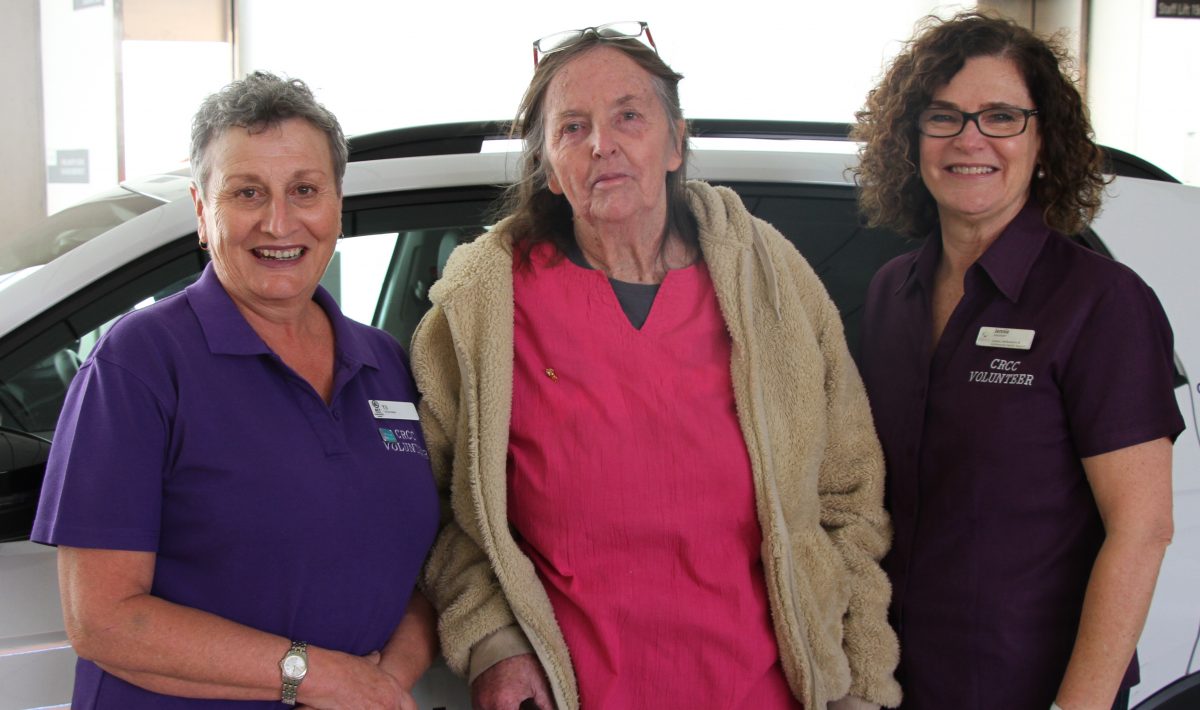
Matilda and Jennie are two of the volunteers who assist and transport Karen to her appointments. Photo: Evelyn Karatzas.
Jennie Gordon has volunteered in the Cancer Centre for the past eight years.
“My son-in-law had a brain tumour when he was very young … he’s good now and in remission, so that’s initially why I decided to retire, to help the family,” Ms Gordon said.
Often, she found patients struggling to get to their appointments, with no choice but to rely on public transport.
“I had one gentleman say it took him over three hours to get here using several buses, and the last thing you want to do when you’re immunocompromised is to sit on public transport, so it’s extremely vital to have a program like this,” she said.
“The program is fabulous, the people are really happy, friendly and positive, so it’s really enjoyable caring and helping patients.”
Canberra Region Cancer Centre volunteers coordinator Caroline McIntrye said the Volunteer Transport Program was one of many successful services that helps the Canberran community and was highlighted in this year’s National Volunteers week.
Since the program began in September 2020, the cars, supplied by Lennock Motors in Phillip, have travelled 52,000 kilometres, completed over 2,500 individual trips and transported over 176 patients across Canberra and surrounding regions.
“In November 2021, which was our busiest month, we did 178 trips and over 5800 kilometres of travelling.”
To find out more about the Volunteer Transport Program, or become a volunteer, visit Canberra Health Services.












